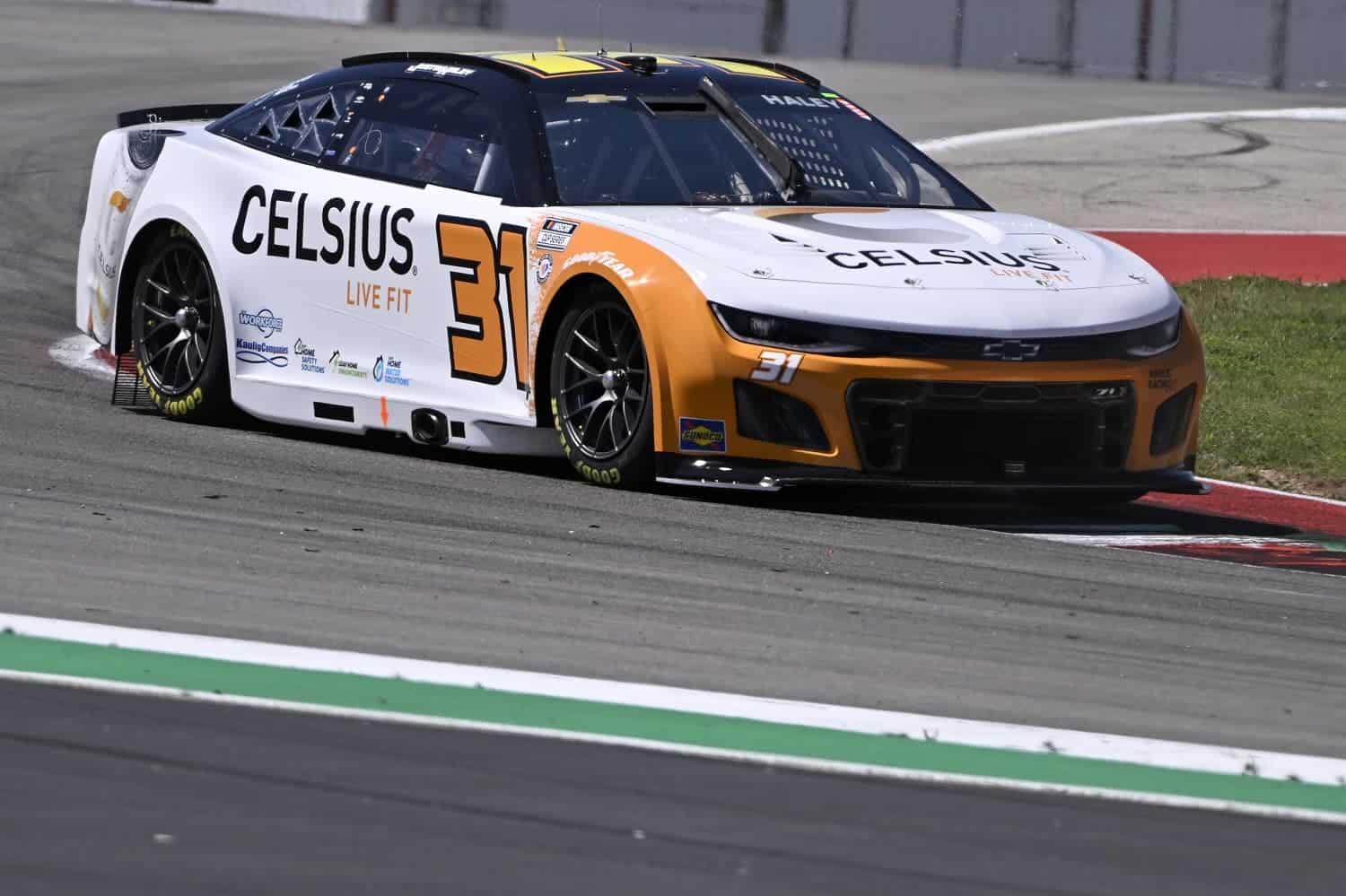NASCAR
NASCAR Did the Right Thing, a Kaulig Racing Car Will Probably Be Impounded, and the Sport Must Make 1 Massive Change

Don’t congratulate NASCAR for doing the right thing regarding Kaulig Racing. The sport’s governing body made things right only after exhausting its other options.
And that was the easy part. Now, NASCAR must address the bigger issue, and we don’t mean the appeals process. But I’ll get to that momentarily.
Kaulig Racing ‘wins’ a rigged final appeal hearing

Kaulig Racing took the appeal of its penalty over a hood louver on the No. 31 Chevy to the court of last resort on Tuesday and succeeded in restoring its 75 owner points and Justin Haley’s 75 driver points (reduced from the original 100), as well as the 10 playoff points for each.
However, it’s not as though team president Chris Rice talked final appeals officer Bill Mullis into it. Rather, NASCAR threw in the towel.
“In the interest of fairness, NASCAR has requested that I remove the driver/owner race and playoff points from the penalty to Kaulig Racing,” Mullis explained in a statement. “I have agreed to this request, per the Rule Book. During its opening remarks, NASCAR stated it believes that the violations did occur, the penalties were appropriate and the three-person appeals panel ruled correctly.”
Mullis explained NASCAR’s rationale for backing down had to do with the case circumstances being so similar to those of the four Hendrick Motorsports cars that same weekend at Phoenix. Though the other measures stood, the appeals panel hearing the HMS case scrapped all the points penalties.
So, crew chief Trent Owens’ $100,000 fine and four-week suspension stand, but Haley moves up seven spots in the standings to 25th and figures to be pumped for Talladega this weekend.
If NASCAR truly is going to treat Kaulig the same, then it will impound a car
NASCAR was correct that the Kaulig Racing and Hendrick Motorsports situations were too similar to allow different outcomes. It couldn’t overrule the appeals panel hearing the HMS case by restoring the points penalties, so it overruled the panel handling the Kaulig case.
And that’s where anything laudatory I might say about NASCAR ends. Executives were justified in wondering how an appeals panel could agree with NASCAR that Hendrick improperly modified the hood louvers and still struck down the points penalties – the most significant piece of the punishment.
NASCAR responded by impounding the cars of William Byron and Alex Bowman four days after the hearing. They took them to the R&D center in North Carolina, where an inspection turned up a modification to the greenhouse. The crew chiefs were fined and suspended, and NASCAR imposed 60-point championship penalties and five-point playoff penalties.
If NASCAR is sincere about keeping the penalties equal, Kaulig’s Justin Haley and/or AJ Allmendinger can look forward to their cars being impounded after Sunday’s race at Talladega. But don’t count on the inspection being conducted with much enthusiasm; Hendrick was the focus of NASCAR’s anger from the moment the appeals panel spoke.
NASCAR must make 1 massive change in the Next Gen car era
Fans point to the appeals process as being broken, and they’re probably not wrong. Given the similarity of the two situations, it’s unfathomable that separate three-person panels heard the cases a week apart instead of one panel taking on all the work in a single day and rendering both decisions at once.
It put NASCAR in a bad spot. Executives knew they shouldn’t overrule the panel handling Kaulig Racing’s case because it would undermine the entire process. Instead, they won in front of the final appeals officer but arranged the right outcome.
NASCAR cleaned up its rule book this month to make radically different decisions less likely, but it still has a bigger problem: the single-source parts. Every Cup Series crew chief and owner knows parts that don’t meet specifications are in the pipeline. The teams sometimes discover issues with little time before they have to load the haulers and head to the track.
If NASCAR is going to insist teams cannot modify single-source parts, then it must take ownership of quality assurance. Yes, it will be expensive, but the governing body should take delivery of parts from the manufacturer, perform quality assurance, and become the distributor. That shifts the onus from 17 teams and 36 crew chiefs to a single staff in one location.
Will that catch every flawed part? No. However, it cuts down on situations warranting penalties and then appeals. And, assuming NASCAR does its job, it becomes nearly impossible for two teams to have problems with the same part in the same race weekend.
Got a question or observation about racing? Sportscasting’s John Moriello does a mailbag column each Friday. Write to him at [email protected].











